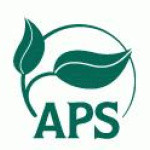- Branche: Plants
- Number of terms: 21554
- Number of blossaries: 0
- Company Profile:
The American Phytopathological Society (APS) is a nonprofit professional, scientific organization dedicated to the study and control of plant diseases.
Spike-like appendage comprised of one or more reduced flowers and associated bracts; unit of inflorescence in grasses; a small spike.
Industry:Plants
A plant host that on the basis of disease symptoms serves to distinguish between various strains or races of a given plant pathogen.
Industry:Plants
A plant host that on the basis of disease symptoms serves to distinguish between various strains or races of a given plant pathogen.
Industry:Plants
A subdivision of a species, subspecies, or race based on some identifiable physiological trait such as a specific virulence pattern.
Industry:Plants
An organism without internal membrane-bound organelles, lacking a distinct nucleus, such as bacteria and mollicutes (see eukaryote. )
Industry:Plants
Any insect of the order Coleoptera characterized by elytra (thickened outer wings), chewing mouth parts, and complete metamorphosis.
Industry:Plants
Organism that lives in intimate association with another organism on which it depends for its nutrition; not necessarily a pathogen.
Industry:Plants
Region in prokaryotes, chloroplasts, and mitochondria where the DNA is concentrated. Unlike a nucleus, it is not bound by a membrane.
Industry:Plants
Seed leaf, one in moncots and two in dicots; primary embryonic leaf within the seed in which nutrients for the new plant are stored.
Industry:Plants
Small, sucking insect of the family Aphididae (order Homoptera) that produces honeydew and injures plants when in large populations.
Industry:Plants
